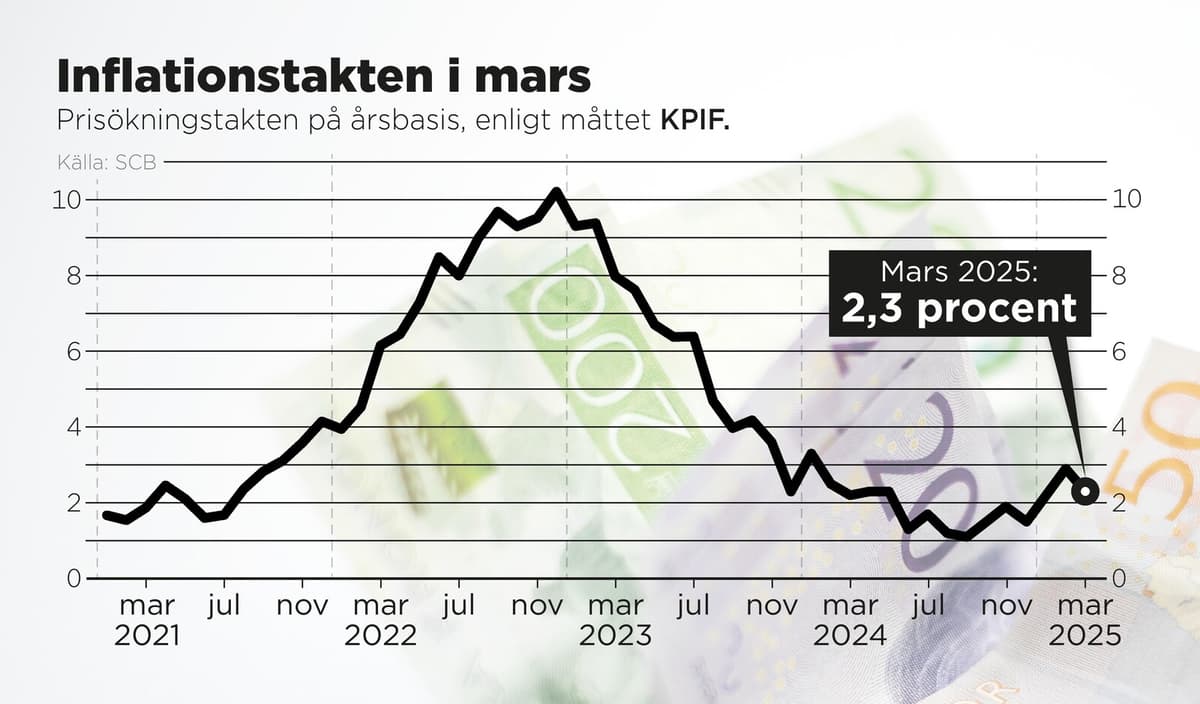In March, the KPIF inflation rate was 2.3 per cent, according to preliminary figures from Statistics Sweden (SCB). The previous month, the inflation rate, the price increase rate on an annual basis, was 2.9 per cent.
The March figure was lower than the 2.6 per cent that analysts had expected, according to Bloomberg's compilation.
It was a low figure, which is positive and a welcome surprise in these days with bad news in the customs area, says Jens Magnusson, chief economist at SEB.
Today's figures are only preliminary and do not show any details about, for example, food prices. That will come next week. But on Thursday, new figures from Matpriskollen showed that the sharp increase in food prices that occurred in January and February has stopped.
In March, the increase was a more cautious 0.1 per cent. However, since January 2022, food prices have risen by 28.5 per cent, according to Matpriskollen.
Food prices may have had an impact
According to Mattias Persson at Swedbank, the lower food prices may have contributed to today's positive figures – but it remains to be seen.
It looks like food inflation has probably come in lower than we expected, he says.
President Donald Trump's tariffs and their direct effects on inflation should be small in Sweden – but instead hit the USA, Persson believes. But the uncertainty in the world is dragging down global growth.
Unfortunately, this will mean that the Swedish economy will also develop a bit weaker.
"A sigh of relief"
But today's positive inflation figures have not closed the door to the Swedish Central Bank lowering the interest rate a little further ahead, according to Mattias Persson.
Inflation is still a bit above the Swedish Central Bank's target, "so we're not home yet", says Jens Magnusson at SEB.
The Swedish Central Bank is probably breathing a sigh of relief that it's not a figure that's going in the wrong direction. But in the short term, you won't change monetary policy. You need to see more signs that inflation is under control before you move on to interest rate cuts, he says.






